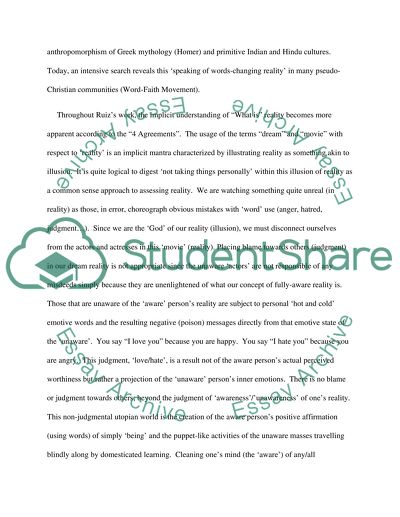Cite this document
(“The four agreements: A practical guide to personal freedom Book Report/Review”, n.d.)
The four agreements: A practical guide to personal freedom Book Report/Review. Retrieved from https://studentshare.org/religion-and-theology/1471692-the-four-agreements-a-practical-guide-to-personal
The four agreements: A practical guide to personal freedom Book Report/Review. Retrieved from https://studentshare.org/religion-and-theology/1471692-the-four-agreements-a-practical-guide-to-personal
(The Four Agreements: A Practical Guide to Personal Freedom Book Report/Review)
The Four Agreements: A Practical Guide to Personal Freedom Book Report/Review. https://studentshare.org/religion-and-theology/1471692-the-four-agreements-a-practical-guide-to-personal.
The Four Agreements: A Practical Guide to Personal Freedom Book Report/Review. https://studentshare.org/religion-and-theology/1471692-the-four-agreements-a-practical-guide-to-personal.
“The Four Agreements: A Practical Guide to Personal Freedom Book Report/Review”, n.d. https://studentshare.org/religion-and-theology/1471692-the-four-agreements-a-practical-guide-to-personal.


